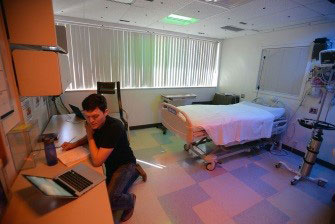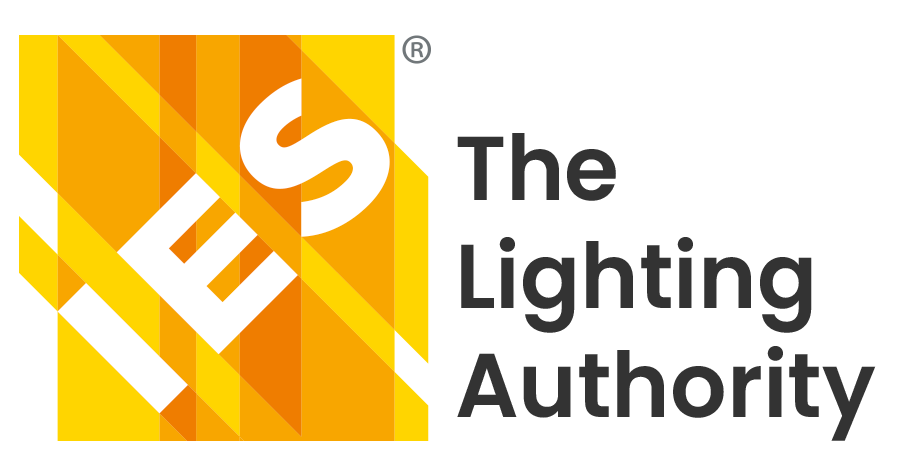Illuminating Engineering Society and Rensselaer Polytechnic Institute Center for Lighting Enabled Systems and Applications Release Workshop Report on Lighting Systems for Healthcare Environments

New York, NY, February 12, 2018 — The world of healthcare is changing rapidly and there is increased interest in the role that light and lighting can play in improving health outcomes for patients and providing healthy work environments for staff, according to many researchers. Recently, the Illuminating Engineering Society (IES) and Center for Lighting Enabled Systems & Applications (LESA) at Rensselaer Polytechnic Institute sponsored a workshop to explore pathways to define and promote the adoption of lighting systems specifically for healthcare environments.
The workshop brought together lighting and human health researchers, healthy-lighting design experts, senior representatives from healthcare standards organizations, and healthcare providers. The aim of the workshop was to initiate an important discussion among diverse stakeholders on the changes in modern healthcare interior lighting applications. The result is the release of a white paper detailing the outcomes and contributions of the participants.
“Today, the field of lighting and healthcare is undergoing rapid development,” said Robert F. Karlicek Jr., LESA director, who also serves as a professor in the Department of Electrical, Computer, and Systems Engineering at Rensselaer. “As research continues to build the link between lighting spectral power distributions and wellness, LED lighting technology strives to bring new healthy-lighting to market. Often commercialization in this capacity happens without establishing the clinical data to demonstrate a value-added benefit for patients or the providers, or a defined return on investment for the healthcare industry.”
“It has long been known that lighting can impact human health and wellness,” said Brian Liebel, director of technical standards at IES. “Research continues to refine the precise role of light spectrum, intensity and timing on the scope of patient outcomes; also, on healthcare worker productivity. But more research is required to provide the evidence necessary for new, modern standards for lighting systems in healthcare and eldercare markets.”
According to Karlicek and Liebel, the workshop white paper is intended to be an evidence based resource for lighting designers and healthcare providers to better understand market drivers. Both noted that the whitepaper is not intended to be a comprehensive summary of the field of lighting for human health and wellbeing – rather a comprehensive introduction of insights shaping the field for participants attending the upcoming IES “Light + Human Health Symposium” that will be held in Atlanta, Ga., from April 8-10, 2018.
About the Illuminating Engineering Society (IES)
IES is the oldest and largest educational and scientific society in North America devoted to lighting. Founded in 1906, the mission of the IES has been to improve the lighted environment by bringing together those with lighting knowledge and by translating that knowledge into actions that benefit the public. A broad variety of programs, including publications, conferences and seminars, have been established to accomplish this mission. IES publishes and distributes the finest lighting literature authored by committees with the most experienced minds in industry and academia today. For more information about IES, go to https://www.ies.org.
About the Center for Lighting Enabled Systems & Applications (LESA) ERC
Funded primarily by the National Science Foundation (NSF), the LESA ERC is an interdisciplinary, multi-university center developing “Smart Lighting Systems that See and ThinkTM. The Center engages faculty members, graduate students, research staff, and undergraduates to work on research leading to smart lighting systems with adaptive and controllable properties that will change the way society uses lighting.The Center joins academia, industry, and government in partnership to produce transformational engineered systems, along with engineering graduates who are adept at innovation and primed for leadership in the global economy. The LESA ERC is headquartered at Rensselaer Polytechnic Institute in Troy, NY, and partners with Boston University, The University of New Mexico, and Thomas Jefferson University to achieve its objectives. http://lesa.rpi.edu.
About Rensselaer Polytechnic Institute
Rensselaer Polytechnic Institute, founded in 1824, is America’s first technological research university. For nearly 200 years, Rensselaer has been defining the scientific and technological advances of our world. Rensselaer faculty and alumni represent 85 members of the National Academy of Engineering, 17 members of the National Academy of Sciences, 25 members of the American Academy of Arts and Sciences, 8 members of the National Academy of Medicine, 8 members of the National Academy of Inventors, and 5 members of the National Inventors Hall of Fame, as well as 6 National Medal of Technology winners, 5 National Medal of Science winners, and a Nobel Prize winner in Physics. With 7,000 students and nearly 100,000 living alumni, Rensselaer is addressing the global challenges facing the 21st century—to change lives, to advance society, and to change the world. To learn more, go to www.rpi.edu.
Contacts
Leah Scott, MBA
Marketing and Outreach Manager
Lighting Enabled Systems & Applications
Rensselaer Polytechnic Institute
Office: (518) 276-4010
Email: scottl2@rpi.edu
Website: www.LESA.rpi.edu
Zoe Milgram
Information Specialist
Illuminating Engineering Society
120 Wall Street, 17th Floor
New York, N.Y. 10005
Office: (212) 248-5000
Email: zmilgram@ies.org
Website: www.ies.org
Rensselaer Polytechnic Institute
Media Relations
Email: newsmedia@rpi.edu
Jessica Otitigbe | News and Editorial Services | Rensselaer Polytechnic Institute
Office: (518) 276-6050 | Mobile: (518) 466-3907 | Email: otitij@rpi.edu
